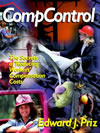All Articles
Aquatics Safety
Hydrology
Audio Forensics
Insurance Coverage Analysis
Biokinetics
Internet Marketing
Blockchain Information
Jails - Prisons - Correctional Facilities
Branding - Brand Management
Life Expectancy - Life Care Planning
Business Consulting
Marketing
Child Witch Phenomenon
Medical - Medicine
Computer Forensics
Oil & Gas
Computers
Pain Management
Damages
Pharmaceuticals
Dental - Dentistry
Pharmacy & Pharmacology
Digital / Crypto Currency
Plants & Trees
Documentation Examination & Analysis
Police Practices & Procedures
Economics
Politics
Engineering
Professional Malpractice
Engines (Combustion - Diesel)
Psychology
Enterprise Resource Planning (ERP)
Public Speaking
Environment
Real Estate
Eyewitness Testimony
Search Engine Optimization (SEO)
Family Issues
Security
Feng Shui
Sexual Abuse - Molestation - Harassment
Food & Beverage
Taxation
Forensic Analysis
Toxicology
Forensics
Workplace Violence
Hotels & Hospitality
Yoga
More...

INTELLECTUAL-PROPERTY-PAGE ARTICLES MAIN PAGE
. Contact Us if you are interested in having your work published on our website and linked to your Profile(s).
All Articles
Accident Investigation & Reconstruction
Hazardous Materials
Accident Prevention & Safety
Healthcare Facilities - Hospitals
Alcohol, Tobacco & Other Drugs
Injury
Alternative Dispute Resolution (ADR)
Investigation & Surveillance
Aquatics Safety
Jails - Prisons - Correctional Facilities
Arms - Guns - Weapons
Land Mapping - Surveying - Zoning
Audio Forensics
Land Use
Branding - Brand Management
Marketing
Business Consulting
Medical Malpractice
Business Management
Metallurgy
Child Welfare
Neuropsychology
Child Witch Phenomenon
Nonprofit Organizations
Computer Forensics
Patents
Cosmetology: Hair / Makeup
Plastic / Reconstructive / Cosmetic Surgery
Crime Scene Investigation
Police Practices & Procedures
Criminology
Politics
Damages
Pools and Spas (Recreational)
Digital / Crypto Currency
Public Speaking
Elevators - Escalator - Automatic Doors
Radiology
Engines (Combustion - Diesel)
Real Estate
Expert Witnessing
Recreation & Sports
Feng Shui
Speech-Language Pathology
Finance
Supply Chain Management
Fires & Explosions
Transportation
Food & Beverage
Yoga
More...
Featured Articles
There are no active articles here at this time. Please use the search bar, try another category, or contact us if you would like to contribute an article.
This Article is unavailable. Contact Us
Search articles by title, description, author etc.
Sort Featured Articles
Featured resources
Living Jonathan's Life: A Doctor's...
by Scott M. Davis, MD
Compcontrol: The Secrets of Reducing...
by Edward J. Priz, et al
Warnings & Safety Instructions:...
by James M. Miller, Mark R. Lehto
Follow us










